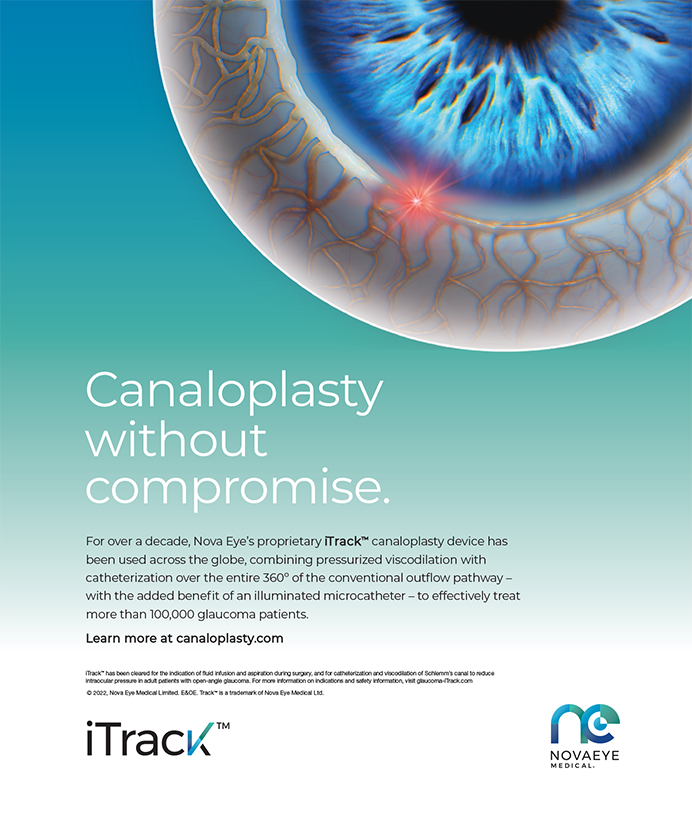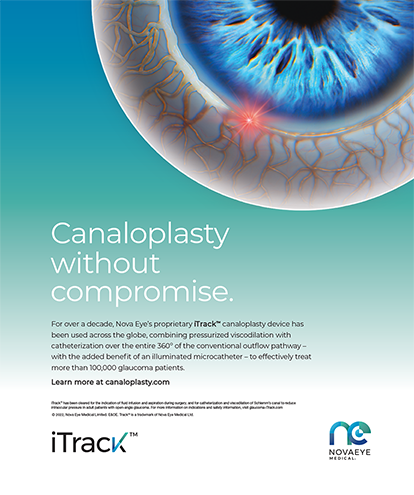You should cringe when you hear patients say, “I can't wait until insurance companies cover LASIK surgery.” Your blood should boil if you hear surgeons and practice administrators repeat that phrase as well. LASIK, a medically unnecessary surgery, has been out of the control of commercial health insurance companies since its inception. It is one of the few procedures in ophthalmology that is insulated from the bureaucratic rules of commercial HMOs and PPOs, and it recaptures the original doctor-patient relationship. This article explains why we should fight to preserve the current status of the LASIK procedure.
WHY INVOLVE INSURANCE COMPANIES?
Are our memories so short that we cannot remember what has happened to the ophthalmic profession since insurance companies become involved with patient care? Complexity, paperwork, overhead, and hassles of every type continue to increase—while reimbursements continue to decrease. The commercial PPOs and HMOs do not want to cover refractive surgery because if that happens, insurance companies would be required to pay for it. The conservative approximation of what it would cost the insurance industry to consider refractive surgery a covered benefit would be over $4.5 billion annually. In addition, that amount could quadruple once a better solution for hyperopia and presbyopia is developed.
With health insurance premiums already increasing 12% to 15% annually, health insurance companies know that covering refractive surgery procedures is impossible. They know that the cost of health insurance is rapidly becoming unaffordable to consumers and businesses. So is there any way in which insurance companies can affordably cover refractive surgery? They have made several attempts at solving the problem.
THE FIRST OF SEVERAL ATTEMPTS
The first idea was to contract with an ophthalmologist on the insurance company's panel and convince him or her to give members a discount in exchange for being listed as a preferred LASIK provider for the plan. One of the reasons that this business plan backfired was because many ophthalmologists who signed up did not have a satisfactory practice model. Another reason it failed was that patients mistakenly thought that because the agreement was made directly between the insurance company and the surgeon, the insurance company would pay a portion of the cost of the procedure. The straight discount was not enticing enough to patients, and they did not like the small number of providers or their lack of experience, reputation, and locations.
ANOTHER TRY
The second attempt by insurance companies to cover refractive procedures has been slightly more successful for them, which means it is more harmful to ophthalmology. Insurance companies have started contracting with third-party routine vision plans to provide a LASIK discount to their members, which protects the insurers from being directly involved in the transactions. Unfortunately, ophthalmologists continue to enroll in these plans because they do not realize the trap. There are 43 million people in the US who do not have health insurance, and therefore are not LASIK candidates from a financial perspective. Very soon, every commercial insurance company will have a third-party routine vision plan associated with their health plan that offers a LASIK discount. The end result will be disastrous. The insurance companies will lower the price of LASIK, because everyone in the US who has health insurance (which is the majority of Americans) is a candidate for LASIK. The commercial insurance companies appear to be the “white knight” by lowering the price of LASIK, but it does not cost them a dime.
The only positive note in this scenario, if there is one, is that many of the routine vision plans being used offer paid benefits for routine eye exams, glasses, and contacts. So if you have primary care services in your practice, at least you will be able to start a doctor-patient relationship, and earn a profit from the routine vision services. As patients age and need medical surgical services in addition to LASIK, they will already be a patient of your practice.
STRIKE THREE
This brings us to the least desirable situation, in which insurance companies contract with discount vision plans that only offer a discount to their members for routine eye exams, optical, and, of course, LASIK surgery. In some cases, these discount-only plans require the patient or surgeon to pay $200 per eye for directing patients to your center. These are the types of plans ophthalmologists need to avoid entirely. They do not pay for routine vision exams or other vision services, but require the surgeon to take a discount on all vision services and LASIK surgery. The $200 finder's fee, or processing fee, has come under great scrutiny by state and federal agencies. How can a fee be collected on a medical procedure before the patient is even evaluated to see if he or she is a candidate for surgery? This type of arrangement is lose-lose for ophthalmology.
LOOK BEFORE YOU LEAP
Before signing up to provide discounted LASIK surgery, think about the long-term effects these arrangements may have on the industry. Once you agree to provide discount services for an insurance company, all the other insurance companies will want the same deal. When this penetration occurs, the price of LASIK will lower in your market. If a provider for a routine vision plan comes to you asking for a LASIK discount, make sure they at least pay fairly for routine vision exams and optical benefits for your primary care doctors. If a provider for a discount-only plan comes to you with a request to give a LASIK discount without having sufficient routine vision benefits, run for the hills.
The best business motto you can have is: “If our patients like us and our staff, they will pay us a fair price for our services and refer family and friends to our practice.” In the long run, there is absolutely no good reason for an insurance company or a discount-only routine vision plan to be involved in refractive surgery. Beware that by agreeing to do business for a discount, you could be lowering the price of refractive surgery in your market. Once every insurance company has negotiated a 20% discount, the real price is 20% lower than your published fee.
So when you hear a colleague say, “I wish insurance companies would start paying for LASIK,” try to lower your blood pressure before politely telling them, “Be careful what you hope for, it just may happen.”Jim Denning is the CEO of Discover Vision Centers in Kansas City, Missouri. He may be reached at (816) 350-4529; jimdenning@discovervision.com


